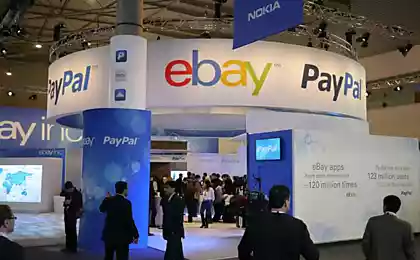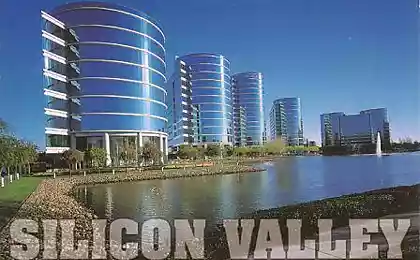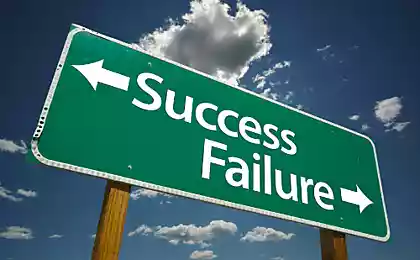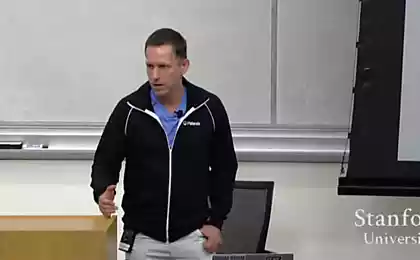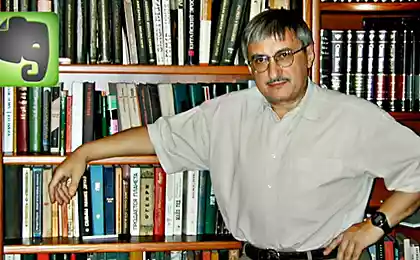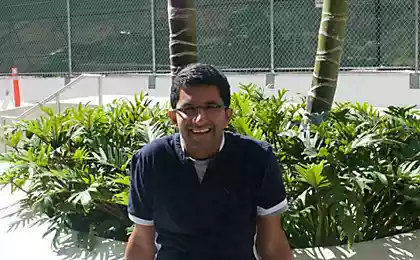1305
As Peter Thiel distinguishes insanely steep startup from the mad
Recently in San Francisco held one of the most prestigious events for developers startups - TechCrunch Disrupt SF. TechCrunch columnist at the conference spoke with Peter Thiel - a famous venture capitalist, co-founder of PayPal and the first outside investor in Facebook. He and his partners launched and financed many successful startups of the last decade: among them, LinkedIn, Yelp, SpaceX, Friendster, Quora and Geni. Video interview with Peter Thiel can look at YouTube , and we in Alconost Translations translated this conversation in Russian - to the delight of all startups, IT people and not only.
How to evaluate ideas and start-ups h4> - You have talked a lot about what you need to choose the ideas and projects that the ordinary person can seem insane. After all, ordinary, "normal" idea someone probably already sold. How do you distinguish a crazy project of insanely cool project that has every chance of success? B>
Charity: help those who help the little h4> - I want to ask you a little bit about your philosophy and the philosophy of the "nouveau riche", which came from the world of technology. Do you think there are different value systems of those who make good money on technology, and those who earn their business, far from the technology?
Snatch and universal injustice h4> - The one who is making a fortune in five years, you may have the feeling that the money earned in fact he did not belong, that he got them by accident. But the one who consistently and purposefully build a career, working every day for 20 years, is the belief that everything that he had come to the end, really belongs to him. Have you noticed that people feel like they really do not have the rights to the money earned in IT, and it is best that money to give to someone? What is the philosophy of the people making large donations to charity?
How to evaluate ideas and start-ups h4> - You have talked a lot about what you need to choose the ideas and projects that the ordinary person can seem insane. After all, ordinary, "normal" idea someone probably already sold. How do you distinguish a crazy project of insanely cool project that has every chance of success? B>
- Explore the idea or project, it is necessary to try to understand their real value and insight into the essence. For example, to assess whether the technology is efficient, the conditions under which it will operate. Besides standing to ask the founders of their shared history: whether they worked together before, they will not abandon his project at the first hurdle? Always need to focus on the essence of the project: the easy way is not here.
- Do you try to avoid bias, assessing what the idea might work in the future, and what - no? B>
- Yes, there is always the temptation to avoid simplistic criteria, and we [venture capitalists, - approx. pens. i>] like no other sin that. But I think it is worth always try to find a flavor, not trying to immediately say "yes" or "no"; really get to the heart every time and be impartial.
- When you found an idea that makes you wonder whether it will work - what questions you ask businesswoman doing a presentation? For example, questions about their philosophy, their long-term vision, about the likelihood of success?
B>
- I appreciate the three key components: the team, the technology and business strategy. All of these components must be equally fulfilling. So when I see that people have focused, for example, on the technology, I probably want to talk to them about the team and about business strategy. That is, turn to the topics about which the entrepreneurs themselves do not want to say much.
Charity: help those who help the little h4> - I want to ask you a little bit about your philosophy and the philosophy of the "nouveau riche", which came from the world of technology. Do you think there are different value systems of those who make good money on technology, and those who earn their business, far from the technology?
B>
- Compile always difficult. But I think it's quite different things: when you have earned on computers or, say, on the extraction of resources in the Congo or something like that. Certainly, I'm a little biased, but I really believe in it.
As for my philosophy - I think that such a concept, as a charity, deserves rethinking. I always like to ask uncomfortable questions; if the business is: "What great company no bases?", the charity that question would sound something like this: "What good things no one wants to support?". And another question, which I always like to ask: "Why is it a good cause is unpopular?". I do not want to allocate funds for the good works that are popular, I think they are so well funded. In my opinion, unpopular good works deserve to get more.
Snatch and universal injustice h4> - The one who is making a fortune in five years, you may have the feeling that the money earned in fact he did not belong, that he got them by accident. But the one who consistently and purposefully build a career, working every day for 20 years, is the belief that everything that he had come to the end, really belongs to him. Have you noticed that people feel like they really do not have the rights to the money earned in IT, and it is best that money to give to someone? What is the philosophy of the people making large donations to charity?
B>
- Well, I think for the most part they just want to give something back to society. Not sure what they think about what they have earned all his wealth, or only part of it.
In fact, that is unusual in the IT-industry of Silicon Valley - is the fact that most inventions bring at least some benefit to their creators. Because the history of innovation - it's mostly stories about people who are their own invention, not trees. For example, the Wright brothers invented the airplane, but do not become rich. You can still recall the famous confrontation Edison and Tesla, said Tesla was a great inventor and did everything correctly, but Edison somehow supplanted Tesla ... As you can see, most commonly inventions in general, do not bring to their authors.
To make money, you need to do two things. The first is to create something of value to the world. Second, wrap the part of the value created in its favor. And just the second people often fail completely. I think Silicon Valley is special in that there is a vast class of innovators who can benefit from the invention of values.
- So, now we have businessmen, wealthy on what is needed by the whole world, and hoping that they can bring to the world benefit?
B>
- Yes, and I always say I do not need a better world because of the need for status or respect. In charitable activities need to be as brave as the base business.
- Well, be brave and make a donation! B>
Source: habrahabr.ru/company/alconost/blog/237975/
Internet drones on Facebook about the size of a Boeing 747 will be in the air for months
Future transorbital overshooting Virgin Galactic: 45 minutes from London to New York, one and a half hours - from London to Sydney

